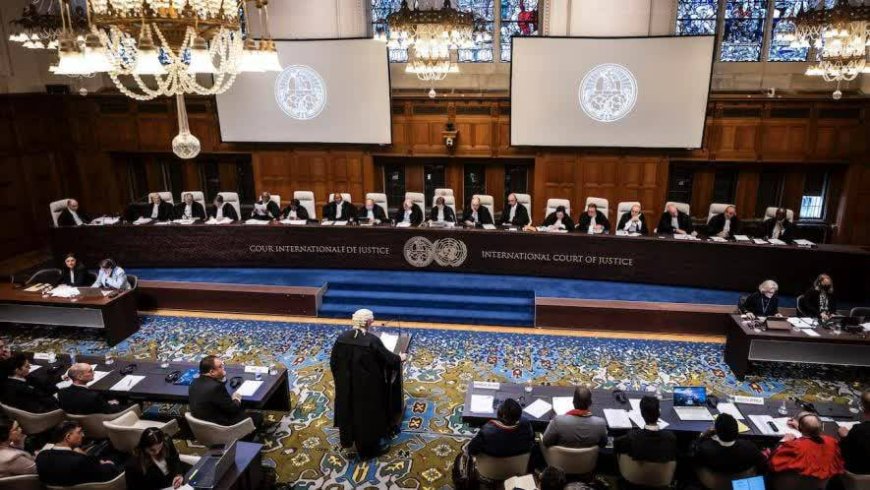ICJ's Verdict on the Israeli Genocide in Gaza: Can It Withstand the United States' Pressures?
In a remarkable act of political courage and an intricate comprehension of the global structure, South Africa has taken a daring stance to confront the prevailing status quo by lodging a complaint against the Israeli regime with the International Court of Justice (ICJ) over its war crimes in the Gaza Strip. South Africa has sought to question not only Israel but also its Western advocates within the framework of the international system. The initial step seems to have yielded a landmark victory, as the court has upheld its jurisdiction to deliberate on the case.

The ICJ, residing in The Hague, stands as a paramount international judicial institution, serving as a cornerstone of the United Nations (UN). The court can only entertain governmental claims if all parties involved consent to them. Consequently, after the filing of any lawsuit, the court examines its jurisdiction, ensuring that the subject matter of the dispute falls within the purview of Article 36 of its statute.
In the case of South Africa's complaint against the Israeli regime regarding undeniable reports of genocide and ethnic cleansing in Gaza, by invoking Article 9, which mandates referral to the ICJ in the event of a dispute between Convention members, despite the Israeli regime's opposition, the court, in its preliminary decision, has confirmed the existence of "formal" jurisdiction. It further signifies the fulfillment of Article 3 of the Convention concerning the potentiality of genocide in Gaza, thereby establishing the court's authority to address this pressing matter.
In this regard, the court has rendered a momentous ruling, compelling the Israeli regime to expeditiously undertake measures to prevent genocide in Gaza, permit humanitarian aid, improve the dire humanitarian circumstances, and cease the systematic destruction of Gaza, utilize all means at its disposal to prevent the killing of Palestinians, the infliction of severe physical or mental harm upon civilians, and stop the implementation of measures designed to prevent the birth of Palestinians.
While the ICJ’s verdicts are binding, non-compliance allows the opposing party to bring the matter before the UN Security Council, which serves as the ultimate arbiter for guaranteeing the court's decisions. However, the veto power possessed by the United States and Britain can undermine the efficacy of these resolutions. Consequently, the United States, as one of the founding members of the United Nations, finds itself under immense pressure to determine its course of action. Will the United States undermine an international judicial body, or will it refrain from continuing its current negative positions? No matter what happens, the ICJ’s initial verdict will undefinably intensify the pressure on Israel and its supporters, potentially exacting a heavy toll on Israel’s Western supporters. As global public opinion mounts and international law seeks to ascertain the truth, the stakes continue to rise.
With the support of global public sentiment, the ICJ's verdict concerning the genocide of the Israeli regime in Gaza, regardless of its eventual fate, represents a significant legal and diplomatic triumph on the international stage for the people of Palestine and South Africa.
But the question remains: Can the court proceed impartially, or will it succumb to the influence of interest groups and political pressures, thereby compromising its credibility? This pivotal test not only challenges the Western-led international order to reclaim its moral authority but also poses a critical examination of the International Court of Justice. Only time will reveal the outcome of this profound trial.













































